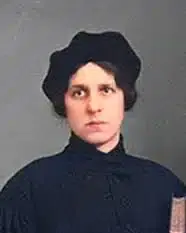On February 21, 2021, the year 2021 as the year 1700 of Jewish life in Germany was opened thanks to an official ceremony.
Sylvia Löhrmann, then State Secretary and General Secretary of Verein 321, is quoted in the fascinating book “Review,” as saying that she was guided in how Jewish diversity was presented. This is indeed illustrated and chronicled in the “Review.” While reading it, the memories sprouted. One issue I recalled was the Jewish Reform movement, with its origin in Germany during the 19th century.

This reminded me once more of an outstanding woman who had long remained in obscurity: Regina Jonas, the first woman Rabbi who had belonged to this Jewish denomination that is still important in America today. Thanks to some recent googling, I learned a little about her life and work. Born in Berlin’s Scheunen-viertel to an orthodox family, she attended the Academy for the Science of Judaism for liberal rabbis, as did several other women. She was the only one determined to become a rabbi. Her final thesis, addressing this question of a female rabbi, was accepted in 1930.
However, Rabbi Leo Baeck, who had taught Jonas and described her as a “thinking and agile preacher,” refused her ordination as he feared the controversy with orthodox Rabbis. Thereupon, Regina Jonas held religious classes in Jewish institutions, as well as other schools, and preached unofficial sermons. Eventually, Rabbi Max Dienemann championed her, and despite some controversy, she received her simcha and was ordained in 1935. While Berlin’s reform synagogue remained unobtainable, the Zionist women’s movement supported and enabled her to continue her work, including appointments in smaller communities. According to a letter to Martin Buber, she probably considered emigrating to Palestine. That she did not pursue seemed to have been due to her care of her mother.
Following the expropriation of her property, Rabbi Jonas was deported in November 1942 to Theresienstadt. There she worked as a Rabbi and as a member of a group that organised concerts, lectures, and other events for more than two years.
In mid-October 1944, she was deported to Auschwitz with the Jewish Council, where she was murdered at the age of 42: one of the last hate activities of the SS as, in November, SS-Kreisführer Himmler ordered the end of the gassing in Auschwitz.
For Rabbi Regina Jonas, this remarkable pioneer and virtually unknown woman, as for so many others, that order had unfortunately come too late for them, their families, friends, and their peoples.
